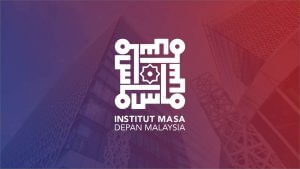What does the budget provide for low-wage workers?

By Mohamed Azmi Mohd Rasheed Khan, Head Corporate Services Division, Institut Masa Depan Malaysia
One glaring omission is the absence of concrete details in the much-anticipated Progressive Wage Model.
The 2024 budget presented by Prime Minister Anwar Ibrahim last Friday is undoubtedly a critical document for the nation’s economic and social future as it carries the hopes and aspirations of all Malaysians who continue to seek financial stability and improved living standards amid cost and price hikes.
It appears robust on the surface but a closer examination reveals several missing vital elements, crucial in safeguarding the lives and livelihoods of Malaysians.
One glaring omission is the absence of concrete details in the much-anticipated Progressive Wage Model (PWM) which was designed by the present government to enable rank-and-file workers to climb the wage ladder through upgrading of skills and productivity.
The PWM, as previously stated by economy minister Rafizi Ramli, is not merely a wage increase mechanism but a path towards reducing income inequality, enhancing the standard of living and ensuring a dignified livelihood for all Malaysians.
Its omission in the budget is a reflection of the government’s lack of focus on the predicament and plight of low-wage workers who continue to struggle to make ends meet in the face of rising living costs. There is no clear road map for PMW and low-wage workers will surely remain in the quandary.
The increase in service tax rate to 8% from 6%, along with the expansion of taxable services only raises concerns about its potential repercussions. While it may boost government revenues, the burden of these tax measures is likely to fall on both consumers and businesses.
The higher service tax is expected to be passed on to consumers and, coupled with the existing sales and service tax regime, this may lead to further increases in costs and prices for goods and services.
Already industry insiders are saying that the increase in service tax would drive up the cost of construction further and that the extra costs will definitely be passed on to buyers.
The rakyat’s main concern now is how the government will manage the present high inflation as well as the high cost of living and doing business. All of us are already feeling the heat.
How is the government going to alleviate the pains that people and homeowners are currently experiencing? Rising costs in building materials and labour will only aggravate the people’s suffering.
The implementation of capital gains tax (CGT) on unlisted shares and the introduction of a luxury goods tax may adversely affect the various sectors and reduce people’s purchasing power. The budget also saw a shift from blanket subsidies to targeted cash aid for lower-income groups.
While this approach aims to ensure that those who genuinely need support will be aided, it also raises questions about its effectiveness. The reduction of diesel subsidies and the removal of price controls on chicken and eggs may have inflationary effects, affecting the cost of living for ordinary Malaysians.
The government’s commitment to increase cash aid to RM10 billion is a positive step, but questions persist about whether this amount is sufficient to provide robust social protection, given the challenges faced by low-income households.
The government also seems to be lacking the vigour to address critical issues surrounding education and youth development. Malaysia’s younger generation is the future of the nation, and their access to quality education is of paramount importance.
In the budget, the education ministry was given a huge allocation where 80% of the allocated budget will be for teacher’s emolument (RM47 billion). The remaining 20% or RM11.7 billion was allocated for new schools, special education schools, maintenance of all schools, including upgrading of facilities for autistic and special needs kids, the poor and the needy.
Our investment in education continues but it seems that the continuation is focused only on maintenance or building of infrastructure or facilities. More, instead, should be invested for our teachers through training to enhance the quality of syllabus and the overall education system of our country.
The gig economy, characterised by freelance, temporary or part-time work, is rapidly growing worldwide, and Malaysia is no exception to this trend.
The budget falls short when it comes to addressing the unique needs of gig workers. It does allocate RM35 million for gig economy training allowances which is a positive step but more comprehensive steps must be introduced to protect the rights and financial security of this growing segment of the workforce.
The budget doesn’t provide a clear strategy to address the critical issue of brain drain in the healthcare sector. The departure of doctors, nurses and specialists from the public sector and the country is a cause for concern.
While the budget allocates a substantial amount to enhance healthcare infrastructure, it lacks details on how to retain and attract healthcare professionals. The government must not only recruit new and trained personnel but ensure the promotion and increased salaries of existing staff for efficiency and productivity.
Overall, the budget lacks urgency in addressing the needs of people, especially the low-income earners and the vulnerable. It doesn’t strike a right balance between dealing with immediate challenges, the high cost of living and setting Malaysia up for the next leg.
Only through a holistic and inclusive approach will Malaysia be able to progress towards a prosperous future.


